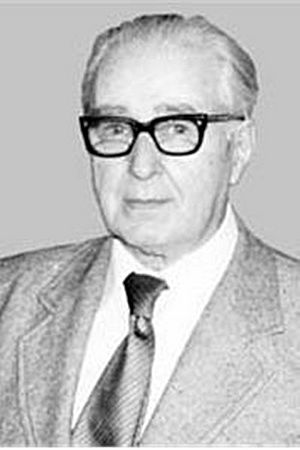Georges Gurvitch facts for kids
Georges Gurvitch (born October 20, 1894, in Novorossiysk, Russia – died December 12, 1965, in Paris, France) was an important French sociologist and expert on law. He was one of the leading thinkers of his time. Gurvitch was especially known for his work in the sociology of knowledge, which studies how knowledge is created and shared in society.
In 1944, he started a journal called Cahiers internationaux de Sociologie. He also held a special teaching position in sociology at the famous Sorbonne in Paris. Gurvitch was a strong supporter of Algeria gaining independence from France. Because of this, he and his wife were attacked by a far-right group called L'O.A.S on June 22, 1962. Their apartment was destroyed by a bomb. They found safety for a while at the home of the famous painter Marc Chagall.
Gurvitch played a big role in developing the sociology of law. This field looks at how law works in society. Like other experts in this area, he believed that law is more than just rules made by governments, courts, or police. He thought that different groups and communities, whether formal or informal, also create their own rules. These rules can be seen as a form of law from a sociological point of view.
Gurvitch's ideas about "legal pluralism" were very strong. He believed there were many different types of law. These types came from the various ways people interact in society. He also emphasized the importance of "social law" and "social rights." These are different from "individual law," which focuses on single people. After World War II, he wrote a "Bill of Social Rights." This was his idea for a legal plan for social law in a world where human rights were becoming very important.
Ali Shariati, a sociologist who influenced the 1979 Iranian revolution, studied with Gurvitch in the 1960s. This was when Shariati was a student in France at the University of Sorbonne.
Key Books by Georges Gurvitch
- Essai de Sociologie (1939)
- Sociology of Law (1942)
- The Bill of Social Rights (1945)
- La vocation actuelle de la sociologie (1950)
- Le concept des classes sociales de Marx à nos jours (1954)
- The Spectrum of Social Time (1958)
- Dialectique et sociologie (1962)
- The Social Frameworks of Knowledge (1972)
See also
 In Spanish: Georges Gurvitch para niños
In Spanish: Georges Gurvitch para niños
 | Janet Taylor Pickett |
 | Synthia Saint James |
 | Howardena Pindell |
 | Faith Ringgold |


